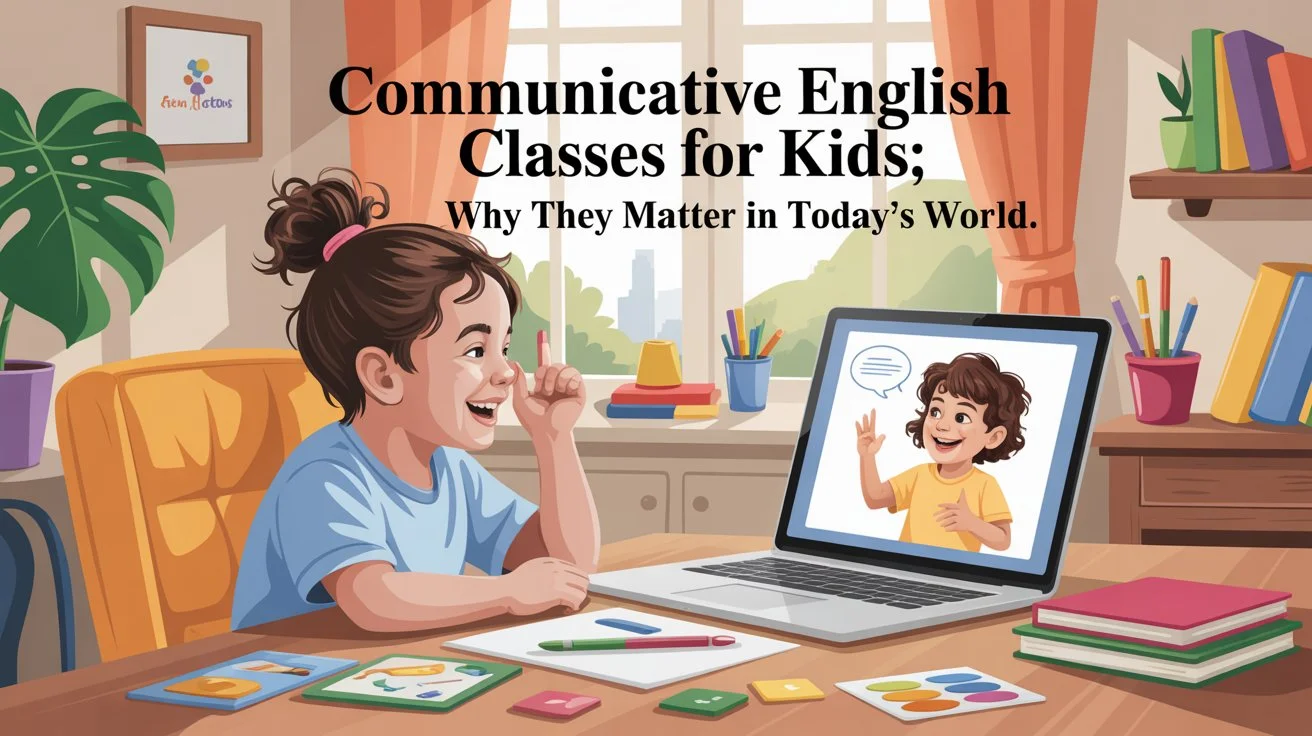Communicative English Classes for Kids: Why They Matter in Today’s World




English has become more than just a language; it’s a bridge to opportunities. For children, learning English early doesn’t just mean speaking a new language; it means building confidence, improving communication, and opening doors to a global future. That’s where communicative English classes come in. They focus on making kids speak and understand English in a natural way, without fear.
Parents often wonder: Why should my child join spoken English for children’s programs? English has become the language of education, business, technology, and a way of communication.
In this blog, let’s discuss what communicative English classes are and what they mean and also the importance of communicative English.
Communicative English classes are different from traditional grammar-heavy teaching. Instead of memorizing rules, children learn through:
This method focuses on how to use English in daily life, not just how to write it in exams.
English is often called the “global language.” Its importance is seen everywhere, from schools to workplaces. For kids, learning English early has life-long benefits:
Speaking English is different from just knowing English. A child may understand English but still hesitate to speak. That’s why the importance of speaking English cannot be ignored.
Benefits include:
Parents often focus only on academics. But the truth is, good communication is as important as good marks. Here’s why spoken English matters:
Children often feel shy while speaking English. With fun and interactive classes, they:
A confident child today becomes a strong leader tomorrow.
Traditional English Classes | Communicative English Classes |
| Focus on grammar and rules | Focus on real-life conversations |
| Teacher-centered | Child-centered and interactive |
| Stress on exams | Stress on communication |
| Memorization-based | Practice and application-based |
When choosing the right course for your child, look for:
Learning does not stop at school. Parents can support by:
To know more about some fun, simple and effective communicative English classes, check out the blog given below,
At Interval Learning, we believe every child deserves the chance to speak English with confidence. Our Spoken English Classes are specially designed for children, making learning fun and effective. With experienced teachers and engaging activities, we ensure kids don’t just learn English, they live it.
We also offer other courses like:
The world is changing, and communication is the key to success. Communicative English classes for kids ensure that your child not only learns English but also gains the courage to use it in real life.
Interval Learning's Online Spoken English programs are designed to make learning English fun, interactive, and stress-free. With activities like storytelling, role plays, and group discussions, children learn naturally while enjoying the process. Every small step in our classes builds confidence that lasts a lifetime.
Enroll today at Interval Learning’s Online Spoken English course and give your child the gift of confident communication!
Starting as early as 5 years old, since young children can pick up new languages more naturally.
Unlike traditional school English that focuses on grammar and exams, Interval Learning’s classes emphasize speaking, listening, and real-life communication through fun, interactive activities.
At Interval Learning, we suggest starting as early as 5 years, as children learn languages faster at a younger age.
Unlike school, our classes at Interval Learning focus on speaking and real-life use, not just grammar and exams.
Yes, with regular practice and encouragement, children build fluency step by step at Interval Learning.
Interval Learning offers both online and offline communicative English classes to suit your child’s needs.
By speaking simple English daily, reading storybooks together, and encouraging practice along with our classes.
We focus on personalized attention, fun-based learning, and proven methods that make kids confident English speakers.